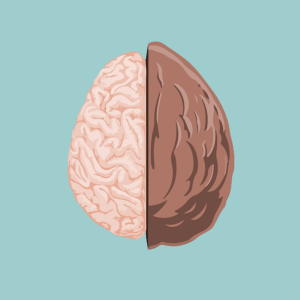
5M
Downloads
243
Episodes
I’m Emma McAdam, a Licensed Marriage and Family Therapist and my mission is to make mental health resources more easy to access. I take therapy skills and psychological research and condense them down into bite-sized nuggets of help. I’m here to spread the message that while mental illness is real, it’s common, it’s debilitating, it’s also treatable. There are dozens of research-backed approaches to treating depression, anxiety, and other mental illness. Change, growth, and healing are possible. Please keep courage! Try one little thing every day to improve your life and health and things can get so much better! Therapy in a Nutshell, and the information provided by Emma McAdam, is solely intended for informational and entertainment purposes and is not a substitute for advice, diagnosis, or treatment regarding medical or mental health conditions. Although Emma McAdam is a licensed marriage and family therapist, the views expressed on this site or any related content should not be taken for medical or psychiatric advice. Always consult your physician before making any decisions related to your physical or mental health. Therapy in a Nutshell and it’s logo are Registered Trademarks of Therapy in a Nutshell, LLC
Episodes

Thursday Feb 20, 2025
Thursday Feb 20, 2025
Learn the skills to Regulate your Emotions, join the membership: https://courses.therapyinanutshell.com/membership
Have you tried a bunch of stuff to manage anxiety and depression, but you’re still struggling? This might be why: Some strategies that work great for the short term, don’t help in the long run. They might make you feel better in the moment, but they do nothing to resolve your anxiety in the long run.
A lot of articles, books, your friends, and even therapists recommend over and over that you learn “coping skills” to deal with anxiety. But coping skills only work in the short term. The most common problem for people like Gwen is they haven’t been taught how to implement the long-term skills that actually make your anxiety go down over time, instead of just coping. Long-term treatments can help you get out of crisis mode and into fixing mode. Fixing the leak in the boat takes more effort and time up front, but it addresses the root cause. Instead of endlessly bailing water, you’re working to repair the hole so you won’t keep ending up in the same situation. This is where cognitive treatments, therapy, or even medication come in—they help you change your relationship with anxiety or reduce its intensity over time. But here’s the thing about these long-term treatments–they often don’t help in the short term. They sometimes even make you feel worse–at first.
Looking for affordable online counseling? My sponsor, BetterHelp, connects you to a licensed professional from the comfort of your own home. Try it now for 10% off your first month: https://betterhelp.com/therapyinanutshell
Learn more in one of my in-depth mental health courses: https://courses.therapyinanutshell.com
Support my mission on Patreon: https://www.patreon.com/therapyinanutshell
Sign up for my newsletter: https://www.therapyinanutshell.com
Check out my favorite self-help books: https://kit.co/TherapyinaNutshell/best-self-help-books
Therapy in a Nutshell and the information provided by Emma McAdam are solely intended for informational and entertainment purposes and are not a substitute for advice, diagnosis, or treatment regarding medical or mental health conditions. Although Emma McAdam is a licensed marriage and family therapist, the views expressed on this site or any related content should not be taken for medical or psychiatric advice. Always consult your physician before making any decisions related to your physical or mental health. In therapy I use a combination of Acceptance and Commitment Therapy, Systems Theory, positive psychology, and a bio-psycho-social approach to treating mental illness and other challenges we all face in life. The ideas from my videos are frequently adapted from multiple sources. Many of them come from Acceptance and Commitment Therapy, especially the work of Steven Hayes, Jason Luoma, and Russ Harris. The sections on stress and the mind-body connection derive from the work of Stephen Porges (the Polyvagal theory), Peter Levine (Somatic Experiencing) Francine Shapiro (EMDR), and Bessel Van Der Kolk. I also rely heavily on the work of the Arbinger Institute for my overall understanding of our ability to choose our life's direction.
And deeper than all of that, the Gospel of Jesus Christ orients my personal worldview and sense of security, peace, hope, and love https://www.churchofjesuschrist.org/comeuntochrist/believe
If you are in crisis, please contact the National Suicide Prevention Hotline at https://suicidepreventionlifeline.org or 1-800-273-TALK (8255) or your local emergency services.
Copyright Therapy in a Nutshell, LLC

No comments yet. Be the first to say something!